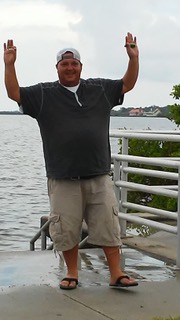Be Supportive of Those with Mental Illness
By: Carol Feineman, Editor
We often look the other direction when a stranger on the street or at a store is talking loudly to an invisible person or yelling out obscenities.
The majority of us don’t try to help this stranger, let alone offer a friendly smile. What we forget is that they can’t help acting out because of mental illness.
Yet many of us, or our loved ones, suffer from some form of mental illness.
In the United States, mental illness conditions affect one in five adults in any given year, according to NAMI (National Alliance on Mental Illness). That is equivalent to 43.8 million adults or 18.5 percent of the country.
Those mental health conditions include schizophrenia, bipolar disorder, depression, schizo-effective disorder, obsessive compulsive disorder and anxiety, according to David Bain, executive director of NAMI Sacramento.
About one in 25 adults in the U.S., or 10 million or 4.2 percent, experiences a serious mental illness in a given year that substantially interferes with or limits one or more major life activities, according to NAMI. Approximately one in five teens aged 13 to 18, or 21.4 percent, experiences a severe mental disorder at some point during their life. For children ages 8 to 15, the estimate is 13 percent.
“Living with mental illness varies from person to person, condition to condition. But basically it comes down to it’s hard, sometimes impossible,” Bain said, “to make the decisions to run your life when your brain isn't thinking clearly. But you don't know that your brain isn't thinking clearly. You think you're fine but everyone else is wrong so trust or lack thereof becomes an issue.”
And when a mentally-disturbed man, Esteban Santiago, allegedly randomly shot and killed five people Friday at the Fort Lauderdale Airport, that makes us more apprehensive about being around those from mental illness.
But individuals with mental illness generally are not violent and the risk to others is low. In fact, NAMI’s national spokesman Bob Corolla pointed out, they are more likely to be victims of violence.
The good news is that mental illness can be managed.
“There is no cure as such. But mental illness can be treated and managed successfully,” Carolla said. “People living with mental health conditions are able to lead productive, fulfilling lives. The key is having access to treatment and support, which unfortunately is a difficult challenge in our health-care system.”
Many of us still believe that we need to stay clear of individuals with mental illness because they’re not like us.
That isn’t the case. One of my friends in Nevada City was a fun, generous songwriter. Before I knew her, she refused to take bipolar medication and couldn’t get out of bed for two years. The state understandably put her first-born daughter in a foster home.
A decade later, my friend was taking meds and successfully raising her second daughter and recording originals. Unfortunately, the other mothers in the school that our daughters attended stayed away from her. In retrospect, I should have defended her when acquaintances called her crazy.
Those with mental illness often feel like they have to keep their conditions a secret. They consider it a stigma.
“Chances are there is someone in your life and you don't know about their illness because many people keep it hidden. Talking about mental illness is very much like coming out of the closet,” NAMI’s Bain said. “People face fear or hatred from those they love, sometimes to the point of being ostracized from family and community.”
Lincoln resident Dede Ranahan, whose son, Pat, was bipolar since childhood, was not allowed to talk to others about her son’s mental illness. It was a stigma Pat carried with him until he died three years ago at age 45 from either cardiac arrest or a seizure.
Ranahan is proud of her son. Pat was a beloved son, grandson, uncle, brother, friend.
“He was very smart, he was very funny, he was very thoughtful,” Ranahan said. “He was a student at Chico State University and organized a parents’ appreciation day where we had a picnic, played games, he made T-shirts. He was thoughtful, he was sensitive. He was an adept poet. I miss him.”
Ranahan now blogs about mental illness issues (soonerthantomorrow.com) and leads a Lincoln support group to help families dealing with mental health issues.
“It’s mind-boggling what is happening in our country right now with our crummy mental-illness system. So much pain and suffering these mothers go through and often mothers are held back if their ill child doesn’t want anyone to know,” Ranahan said. “They don’t want to abuse their trust so they end up not talking about it. If we don’t talk about it, the extent of the pain and suffering can’t be known by the broader public. The broader public doesn’t know how serious the problems are in our mental health system. HIPAA (Health Insurance Portability and Accountability Act of 1996) laws prevent parents from helping their children. There is a lack of beds, lack of housing and a lack of mental health professionals that we need.”
How can the community help?
“Just by not making quick judgments. If someone acts out, you don’t know what they’re dealing with,” Ranahan said. “We have to be less judgmental. If you know people advocating for mental illness issues, if they need your signature, support them in their advocacy.”
NAMI’s Bain agrees with Ranahan by saying that family members can help best by being supportive but not judgmental.
“It doesn't mean that they need to give in to their loved ones demands," Bain said. "Just don't say things like ‘try harder, pray to God for help, focus more.’ Also, be flexible. Diagnosis can change. Circumstances can change.”
And if someone is yelling in the street or talking to an invisible person, don’t look away.
© Copyright Gold Country Media
http://www.lincolnnewsmessenger.com/article/1/11/17/be-supportive-those-mental-illness










